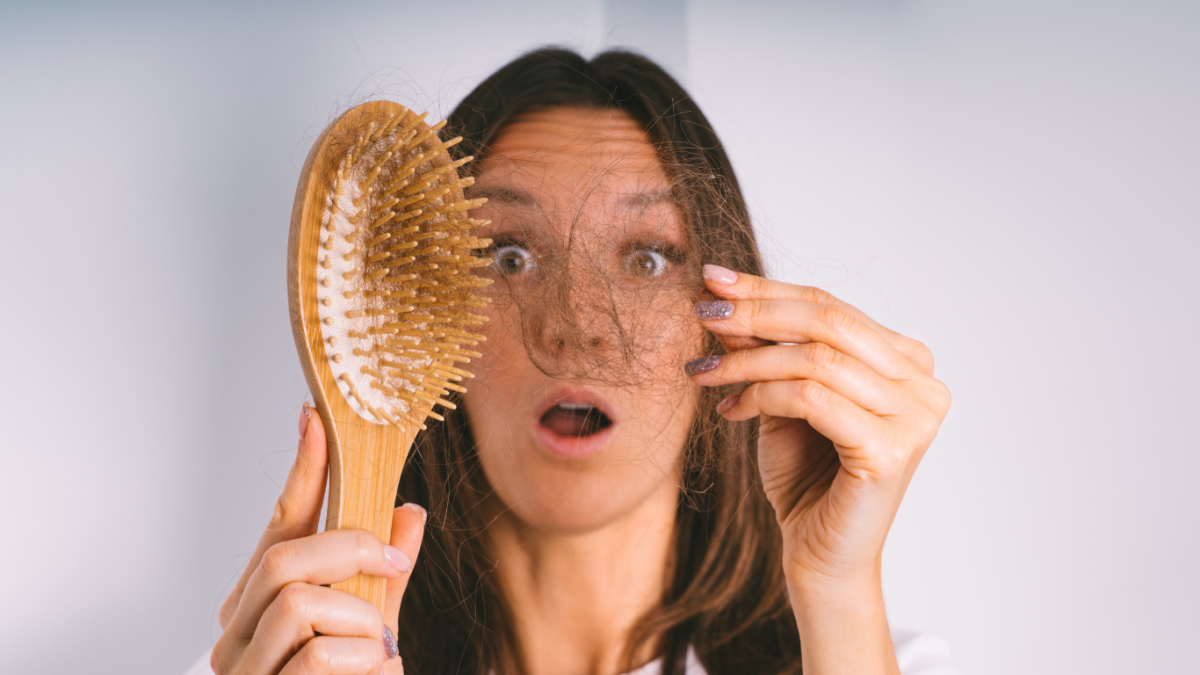Hair Today, Gone Tomorrow? Tackling Menopausal Hair Challenges Head-On

Menopause and Your Hair
You know how menopause brings a bunch of changes? Well, one of them might be playing tricks on your hair. Some women might notice their hair getting a bit thin, while others might spot some new growth in places they didn’t expect. It’s all thanks to those hormonal roller coasters we ride during menopause.
Spotting the Signs and Getting Help
So, if you’re seeing more hair on your brush or maybe some patches that aren’t as full as they used to be, it’s a good idea to chat with a dermatologist. They’re like hair detectives and will run some tests – maybe take a little blood, have a closer look at your scalp, or even take a tiny sample. They’ll figure out what’s up. There are treatments out there, from meds to more advanced stuff like hair transplants.
Looking Out for Your Locks
Now, while we can’t fight our genes or hit pause on aging, we can be kind to our hair. Maybe rethink that super tight ponytail or reconsider those harsh chemicals. And you know how they say, “you are what you eat”? Well, a balanced diet does wonders for your hair too. Oh, and if you’re thinking about quitting smoking, here’s another reason: your hair will thank you.
The Bright Side
Losing hair can feel pretty rough, emotionally speaking. But remember, it’s not just you, and there’s help out there. The sooner you seek it, the better the chances of slowing down the hair loss or even turning things around. So, chin up and know there are experts ready to help you out.
Nutrition and Hair Health
A balanced diet plays a pivotal role in maintaining the health of your hair, especially during menopause. Consuming the right nutrients can potentially reduce hair thinning and loss. Here are some dietary recommendations:
- Protein: Hair is primarily made of protein, so it’s essential to consume enough protein in your diet. Foods like fish, poultry, lean meats, and eggs are excellent sources.
- Iron: Iron deficiency can lead to hair loss. Incorporate iron-rich foods like spinach, kale, and fortified cereals into your meals.
- Omega-3 fatty acids: These fats promote hair growth and can be found in fatty fish like salmon and mackerel, as well as flaxseeds and walnuts.
- Vitamin E: This vitamin supports a healthy scalp. Nuts, especially almonds, are a great source of Vitamin E.
- Biotin: Biotin deficiencies can lead to thinning hair. To ensure you’re getting enough, include foods like whole grains, liver, egg yolk, soy flour, and yeast in your diet.
A well-rounded diet not only benefits your hair but also your overall health. If you’re considering making significant changes to your diet, it’s always a good idea to consult with a nutritionist or healthcare professional.
